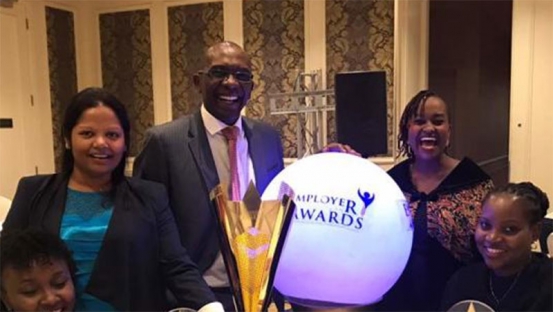×
The Standard e-Paper
Join Thousands Daily

The British American Tobacco Company (BAT) was crowned the overall Employer of the Year at a ceremony held in Nairobi last Friday. At position two was Centum Investment Company Ltd, with the University of Nairobi coming in third.